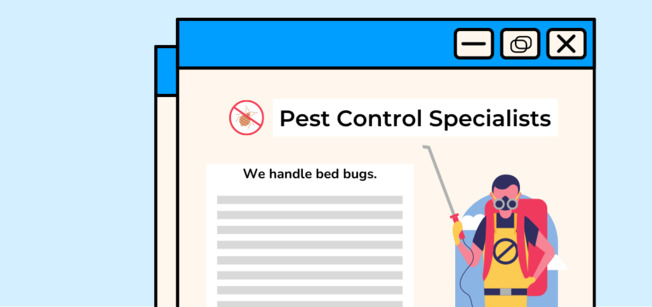
Renting with Bad Credit: How to Strengthen Your Application
Apartment hunting with bad credit? While a low credit score can make your apartment search more difficult, there are steps you can take to put a potential landlord at ease and strengthen your rental application when renting with bad credit.
Check Your Credit Score
Before you fill out a rental application, it helps to know your credit score. The good news is that there are plenty of websites that make it easy and free to quickly check your score online.
What is a Credit Score?
A credit score is a three-digit number between 300 to 850 that takes into account factors such as your payment history, amounts owed, and the length of your credit history. When it comes to renting an apartment, landlords look to your credit report as an indicator of your ability to pay your monthly rent.
What Is a Bad Credit Score?
A credit score of 300 to 579 is typically considered poor. A credit score of 580 to 669 is fair. If your credit score is below 579, it may be cause for concern in the eyes of a landlord or property manager.
What Is a Good Credit Score?
A good credit score is anything above 670. A very good credit score ranges from 740 to 799. And an excellent credit score is anything from 800 to 850.
Explain Your Situation
Most people understand that once your credit score takes a hit, it can take a while to turn it around. Perhaps you got into some credit card debt early in your life. Or maybe you just didn't realize the negative impact of late payments on things like student loans. Whatever the cause, it can help to acknowledge your bad credit and explain how you are improving it.
Include a Cover Letter
It's common knowledge that a cover letter can strengthen a job application. Well, the same is true when it comes to renting an apartment. A good rental application cover letter should include why you're looking for a new apartment and what makes you a good tenant; for example, a steady income and strong rental history. You are proving to the property owner that you are a responsible tenant that has the financial stability to make on time payments. When renting with bad credit, your cover letter is a great place to explain why your credit score is low and what you are doing to improve it. Before submitting your letter, be sure that it is well written and free of typos.
Provide References and Proof of Income
There's nothing like the reassurance of a reference from a previous landlord. If your former landlord can vouch that you are a good tenant with a history of paying your monthly rent on time, that could go a long way toward strengthening your rental application when renting with bad credit. A reference from a former or current employer and pay stubs from the past several months proving your payment history can also be helpful. Providing current proof of income and employment is a way to reassure property managers of your ability to pay despite a poor credit score. You could also show bank statements, and credit card balances as a proof of income. Consider asking your previous landlord and/or an employer to write a letter of recommendation that you can include with your rental application.
Find a Co-Signer or a Guarantor
Another way renters can overcome less than stellar credit history is to find a roommate with good credit who can be your co-signer. If getting a roommate doesn't appeal, you can try to find a guarantor. A guarantor is someone with good credit (often a family member or friend) who signs a lease agreement along with a tenant, guaranteeing rent payment in the event that the tenant cannot do so. For more info on lease guarantors, check out our article, What is a Guarantor and Who Needs One?
Pay More Upfront
What better way to convince a property manager of your ability to pay than to offer a larger security deposit upfront? If you can afford it, you can also agree to pre-pay a few month's rent at the beginning of your lease.
The Bottom Line
When you know your credit score will be a red flag, you may be inclined to try to find a rental property that doesn't require a credit check. While explaining your credit history is a hassle, you could be in for even bigger headaches like rental scams and bad neighbors if you rent from a landlord who doesn't sufficiently screen their tenants.
Top cities
Atlanta Apartments
1,825 apartments starting at $630/month
Austin Apartments
6,133 apartments starting at $600/month
Baltimore Apartments
1,423 apartments starting at $640/month
Boston Apartments
5,609 apartments starting at $425/month
Charlotte Apartments
2,980 apartments starting at $570/month
Chicago Apartments
5,458 apartments starting at $400/month
Dallas Apartments
5,455 apartments starting at $625/month
Fort Worth Apartments
2,695 apartments starting at $695/month
Houston Apartments
5,813 apartments starting at $450/month
Las Vegas Apartments
1,016 apartments starting at $795/month
Los Angeles Apartments
12,712 apartments starting at $750/month
Miami Apartments
702 apartments starting at $1,200/month
Milwaukee Apartments
1,106 apartments starting at $475/month
New York Apartments
8,874 apartments starting at $600/month
Oakland Apartments
983 apartments starting at $850/month
Orlando Apartments
877 apartments starting at $895/month
Philadelphia Apartments
3,614 apartments starting at $500/month
Phoenix Apartments
3,461 apartments starting at $592/month
Pittsburgh Apartments
1,382 apartments starting at $590/month
Portland Apartments
2,260 apartments starting at $575/month
Raleigh Apartments
1,471 apartments starting at $550/month
San Antonio Apartments
3,372 apartments starting at $525/month
San Diego Apartments
2,860 apartments starting at $650/month
San Francisco Apartments
664 apartments starting at $500/month
San Jose Apartments
516 apartments starting at $1,000/month
Seattle Apartments
3,520 apartments starting at $452/month
Tampa Apartments
776 apartments starting at $808/month
Washington DC Apartments
2,256 apartments starting at $910/month


